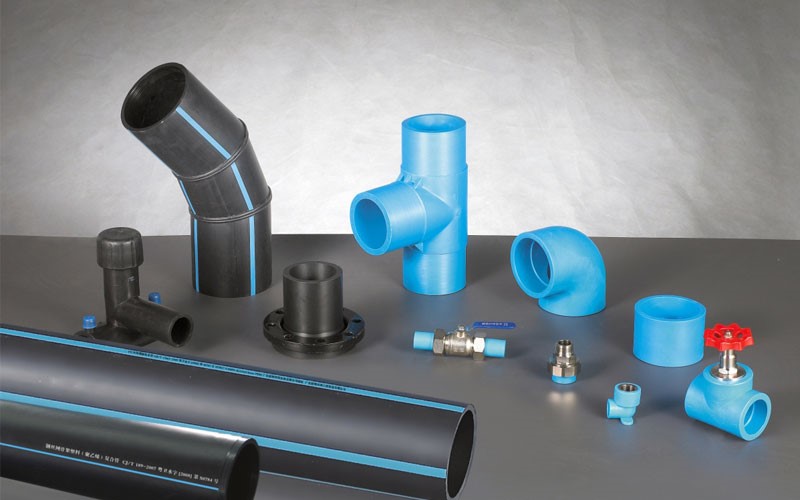Jan . 01, 2025 13:43 Back to list
PVC Pipe Production and Manufacturing Processes Explained for Industry Professionals
The Rising Demand for PVC Pipes A Focus on Manufacturers
Polyvinyl Chloride (PVC) pipes have become an essential component in modern infrastructure, ranging from water supply systems to drainage solutions. The advancements in technology and the growing emphasis on sustainable practices have led to an increase in the production and use of PVC pipes. This article delves into the PVC pipe manufacturing industry, exploring the benefits of PVC pipes, the manufacturing processes, and the future trends shaping this market.
Advantages of PVC Pipes
One of the primary reasons for the growing popularity of PVC pipes is their exceptional durability and resistance to corrosion. Unlike traditional materials such as metal, PVC pipes do not rust or corrode, resulting in a longer lifespan and reduced maintenance costs over time. They can withstand a variety of environmental conditions, making them suitable for both residential and commercial applications.
PVC pipes are also lightweight and easy to handle, which simplifies transportation and installation processes. This aspect is particularly advantageous for contractors, as it reduces labor costs and enhances productivity. Moreover, the smooth interior surface of PVC pipes prevents scaling and buildup, ensuring efficient flow rates and minimizing potential blockages.
Another significant advantage is the versatility of PVC. It can be used for diverse applications, including potable water distribution, drainage systems, sewage systems, and even electrical conduits. This adaptability has led to a surge in demand across various sectors, including construction, agriculture, and municipal infrastructure.
The Manufacturing Process
The manufacturing of PVC pipes involves several key steps, starting with the polymerization of vinyl chloride monomer (VCM) to produce PVC resin. The resin is then combined with additives such as stabilizers, lubricants, and pigments. This mixture undergoes a process called extrusion, where it is heated and forced through a die to create the desired pipe shape.
pvc pipes manufacturer

Once the pipe is formed, it is cooled and cut to specified lengths. Quality control is integral to this process, and manufacturers conduct various tests to ensure that the pipes meet industry standards for strength, durability, and dimensional accuracy. Some manufacturers also implement advanced technologies such as automated inspection tools to enhance quality assurance.
To cater to the increasing environmental awareness, many PVC pipe manufacturers are now focusing on sustainable practices. This includes the development of eco-friendly production methods, recycling initiatives, and the use of recycled materials in manufacturing. As a result, the industry is evolving to meet not only regulatory requirements but also consumer preferences for environmentally responsible products.
Future Trends in the PVC Pipe Industry
The PVC pipe industry is poised for significant growth in the coming years, driven by urbanization, infrastructure development, and increasing demand for clean water and sanitation. According to industry forecasts, the global PVC pipe market is expected to witness a steady increase, particularly in emerging economies where infrastructure investment is on the rise.
Innovations in manufacturing techniques are also set to revolutionize the industry. The introduction of advanced materials and technologies such as polyvinylidene fluoride (PVDF) and improved extrusion methods will lead to enhanced performance and new applications for PVC pipes. Furthermore, the digitalization of manufacturing processes through the Internet of Things (IoT) and automation will increase efficiency and reduce operational costs.
Additionally, the growing emphasis on sustainable construction practices and green building certifications will drive demand for eco-friendly PVC pipes. Manufacturers that prioritize sustainability will likely gain a competitive edge in the market.
Conclusion
The PVC pipes manufacturing industry is at a transformative juncture, characterized by rising demand driven by infrastructure development and a focus on sustainability. The exceptional properties of PVC, combined with ongoing innovations in manufacturing, position this material as a cornerstone of modern infrastructure solutions. As the industry continues to evolve, manufacturers that adapt to changing market dynamics and consumer preferences will thrive in this burgeoning sector. Ultimately, PVC pipes will play a crucial role in shaping the infrastructure of tomorrow, contributing to efficient, durable, and eco-friendly solutions for a wide range of applications.
-
High-Quality PVC Borehole Pipes Durable & Versatile Pipe Solutions
NewsJul.08,2025
-
High-Quality PVC Perforated Pipes for Efficient Drainage Leading Manufacturers & Factories
NewsJul.08,2025
-
High-Quality PVC Borehole Pipes Durable Pipe Solutions by Leading Manufacturer
NewsJul.08,2025
-
High-Quality PVC Borehole Pipes Reliable PVC Pipe Manufacturer Solutions
NewsJul.07,2025
-
High-Quality UPVC Drain Pipes Durable HDPE & Drain Pipe Solutions
NewsJul.07,2025
-
High-Quality Conduit Pipes & HDPE Conduit Fittings Manufacturer Reliable Factory Supply
NewsJul.06,2025

